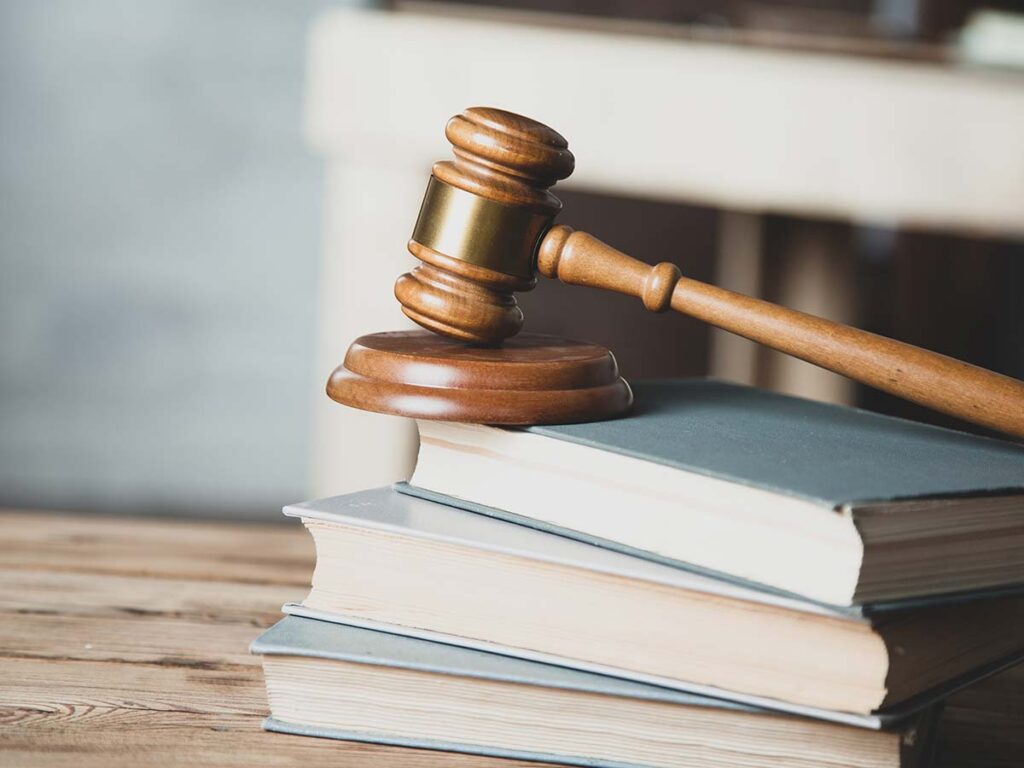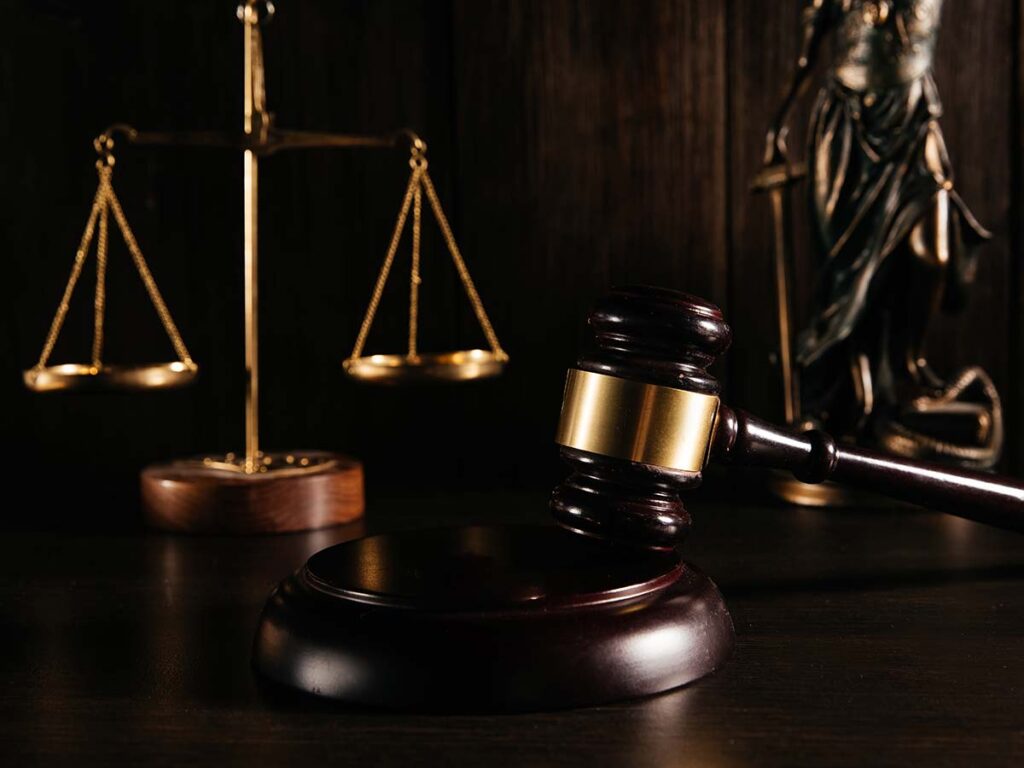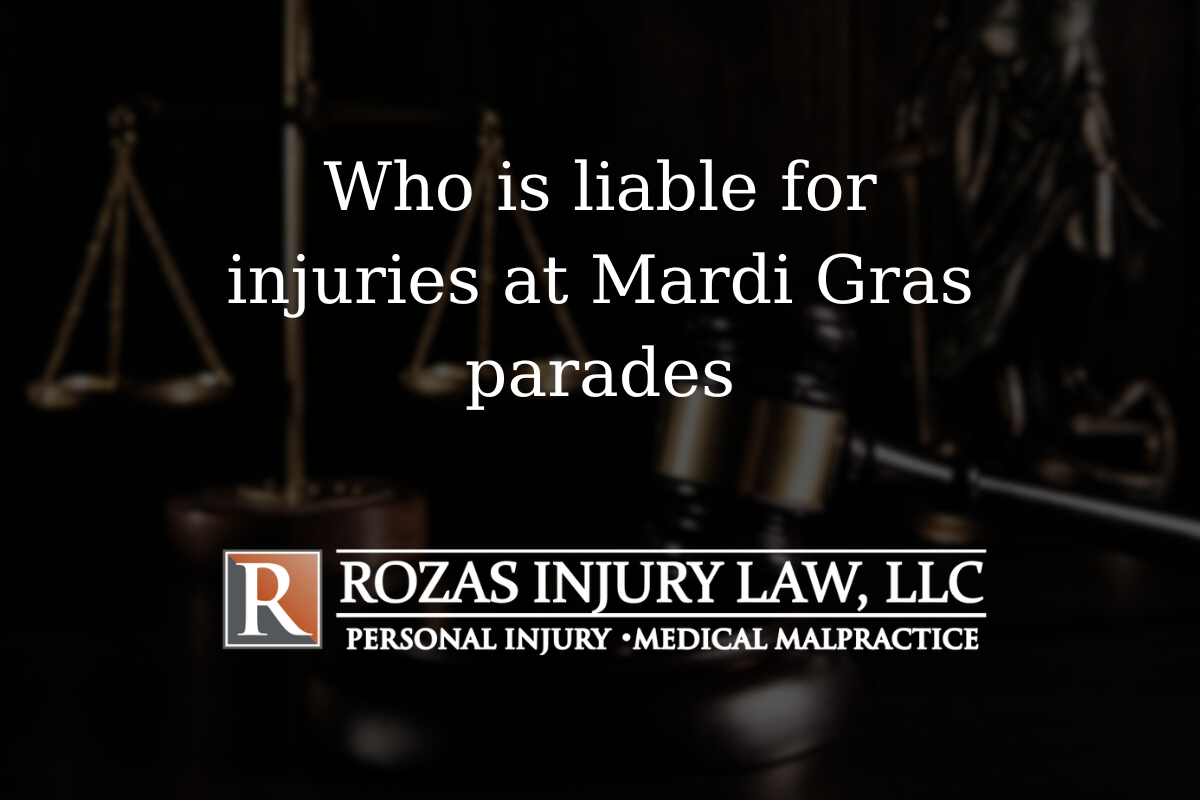The Mardi Gras season in New Orleans is filled with excitement, cultural pride, and dazzling displays along the parade routes. But amidst the music, floats, and crowds, injuries can and do occur. From minor injuries caused by thrown objects to serious incidents involving tandem floats, understanding who is liable for Mardi Gras parade injuries is crucial for those affected.
This blog explores how liability works during these public events, the role of Louisiana law, and what steps injury victims can take to seek compensation.

Common Parade Accident Scenarios
Injuries at Mardi Gras parades often stem from the unique conditions of the events. Common causes include:
- Objects traditionally thrown from floats (beads, cups, doubloons)
- Sudden stops by moving floats
- Crowd-related incidents
- Inadequate barriers along the parade route
- Drunk drivers near parade routes
- A complete neglect of safety measures by event organizers or krewe members
Parade injuries can vary from head injuries and broken bones to emotional distress caused by trampling or unsafe float design. When these incidents occur, determining the responsible party is the first step in beginning a personal injury claim.
Liability Under Louisiana Law
In Louisiana, determining liability after a parade accident is complex due to the presence of the Mardi Gras Immunity Statute. This law offers some protection to Mardi Gras krewes and parade organizers, but it is not absolute.
The Mardi Gras Immunity Statute
This statute provides limited protection to parade participants and organizations, shielding them from lawsuits except in cases involving:
- Gross negligence
- A deliberate and wanton act
- An act or gross negligence resulting in harm
If a plaintiff can prove that a party’s negligence rose to the level of gross negligence or wanton disregard for safety, the immunity does not apply. For example, if float builders fail to ensure safe construction or if organizers show utter disregard for crowd safety, they may still be held liable.
Who Might Be Held Liable?
In most parade accident cases, several parties may share liability, including:
- Mardi Gras krewes
- Parade organizers or event staff
- Float builders and operators
- Local municipalities if public safety measures were ignored
Injured individuals must gather evidence showing how the injury occurred and whether a responsible party failed to take reasonable precautions. This could involve eyewitness statements, photographs of the scene, or the absence of aid stations and crowd control.
What to Do If You’re Injured at a Mardi Gras Parade
1. Seek Immediate Medical Attention
Your health comes first. Whether you’ve suffered minor injuries or more severe consequences, visit a hospital or aid station immediately. Prompt care helps document the extent of your injuries and creates vital medical records.
2. Document the Incident
Gather as much evidence as possible:
- Take photos of where the injury occurred
- Note the presence (or absence) of barriers, signage, and aid stations
- Collect witness information
- Record whether the incident involved tandem floats, sudden stops, or thrown objects
These records will be crucial for your personal injury attorney during the legal process.
3. Consult a Personal Injury Lawyer
Navigating a Mardi Gras injury case requires deep knowledge of Louisiana’s personal injury law and parade-specific statutes. An experienced personal injury lawyer can:
- Help you determine if your injury meets the threshold to bypass the Mardi Gras Immunity Statute
- Build a case based on gross negligence or a wanton act
- Represent you in negotiations with an insurance company
- Handle the entire process so you can focus on recovery
At Rozas Injury Law, LLC, our team has extensive experience handling personal injury cases related to public events and crowd-related incidents.
Damages You May Recover
If you were injured during a Mardi Gras parade due to someone else’s negligence, you may be entitled to seek compensation for:
- Medical expenses
- Lost wages or lost income
- Pain and suffering
- Property damage
- Emotional distress
- Ongoing care for severe injuries
It’s critical to act quickly, as Louisiana law places strict time limits on filing personal injury claims.
Learn more about who is liable for injuries at Mardi Gras parades. Call Rozas Injury Law, LLC at (225) 343-0010 to schedule your free, no-obligation consultation. You can also reach us anytime through our contact page. Let us help you take the first step toward justice and recovery.

FAQs: Mardi Gras Parade Injuries
Who is responsible if I’m injured by a float at a Mardi Gras parade?
Liability could fall on the krewe, float builders, or event organizers—especially if there’s evidence of gross negligence.
What if I’m hit by a thrown object?
While Mardi Gras krewes are often immune, exceptions exist if the act was deliberate or involved reckless disregard for safety.
Can I sue for emotional distress from a parade-related injury?
Yes, emotional distress caused by gross negligence or crowd-related incidents may be compensable in a personal injury claim.
Do I need a personal injury attorney?
Absolutely. These cases involve complex statutes and high evidentiary standards. An attorney helps protect your rights and can increase your chance of a fair compensation.
How long do I have to file a personal injury claim in Louisiana?
You typically have one year from the date the injury occurred. It’s best to contact a law firm as soon as possible.




